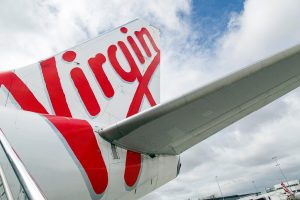This is not Ansett: Virgin Australia’s plan to emerge from administration
On 21 April 2020, Virgin Australia announced that it entered into voluntary administration (VA) after being unable to meet its $5 billion dollar debt and after being turned away by the Federal Government for a bailout. Despite being unable to secure the support of the Federal Government, the precedent set by other Australian Companies, such as Channel 10 and Darrell Lea indicates that entering voluntary administration was a crucial in ensuring the survival of those companies. This step could be as equally as critical for the survival of Virgin Australia to prevent it from becoming a distance memory like that of infamous Australian airline, Ansett.
Upon the collapse of Ansett in 2001, the Company went into liquidation with no cash at bank and the members of Ansett Global Rewards (‘AGR’) were advised their points were worthless. This is a result of the AGR being treated as an unsecured creditor of Ansett. Unlike Ansett, Virgin Australia’s Velocity Frequent Flyer is a separate entity and has not entered administration. While points are unable to be actively utilized by Virgin Australia members, they have not been rendered worthless in the same way they were in the Ansett collapse.
Virgin Australia’s Board of Directors has appointed Vaughan Strawbridge, John Greig, Sal Algeri and Richard Hughes of Deloitte as voluntary administrators of the company and its subsidiaries.
On 4 September 2020, US private equity firm, Bain Capital comprising of the largest group of creditors voted in favour of the sale of Virgin Australia to Bain Capital which is expected to be completed on 31 October 2020 upon approval of the Federal Court of Australia. Bain’s proposed deeds of company arrangement (‘DOCAs’) was agreed to be the best roadmap out of the company’s administration. The Bain DOCA intends to reset the company and includes but is not limited to the following:
- to meet all employment entitlements in full;
- securing approx. 6000 jobs upon the recovery of the market, with 3000 jobs currently impacted;
- discontinue the Tigerair Australia brand, however, retain the necessary support to provide the option of low-cost operations when the market recovers from the COVID-19 recession; and
- continue to commit to regional and charter flying.
Much to the dismay of the bondholders of the Company, Bain Capital’s securing of Virgin Australia will only provide a return to the airline’s unsecured creditors of between approximately 9 to 13 cents in the dollar. Despite the criticisms, the Company’s administrators maintain that the deal with Bain provides certainty to employees, customers and some creditors.
Given the new route paved by Bain for Virgin Australia, it will be up to the Government to ensure that it prevents a Qantas monopoly and higher fares during this period of recovery. While uncertainty remains in the market, this move will allow Virgin Australia to adapt to a new economic climate much like many other Australian companies, hopefully without becoming a ghost of Australian airlines past
For further information, please contact Roser Lawyers.

